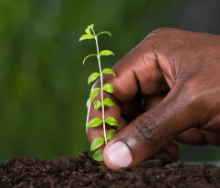South Africa’s fresh produce exports are expected to grow by 6,8% over the next five years as the world continues to struggle with the high cost of food, wastage, and the burden of unhealthy diets.
This was among the insights International Fresh Produce Association CEO Cathy Burns shared at the association’s Southern Africa conference held in Cape Town.
The three-day event earlier this month brought together 260 stakeholders across the fresh produce supply chain to focus on a range of issues facing the sector.
"The challenges have never been stronger," said Burns, citing inflation, war, climate crises, energy shortages and trade barriers.
“All of these factors can be relentless. Yet, our future has never been set up for us to make more of an impact. Our time is now.”
Fresh produce accounts for about 7% of the world's total exports. Despite the small percentage, fresh produce is a high-value crop. In 2022, exports represented $1.3 trillion in revenues globally.
“The South African fruit and vegetable market is predicted to grow at a Compound Annual Growth Rate (CAGR) of 6.9 per cent by 2028.”
Burns said there was a lot of innovation, investment and momentum around sustainability and technology.
"Regenerative agriculture was recognised as one of the world-changing ideas this year. Food waste and loss is an area the industry continues to take head-on. An estimated $600 billion of food is lost during or after harvest. Two-thirds of this food is still edible but does not meet customers' standards regarding size, appearance, superficial differences or out-of-date packaging,” Burns said.
"Around the world, consumers often throw out food unnecessarily as they believe that the best-before date refers to the last day they can use food instead of referring to the freshness of the product.”
Burns said this had spurred several UK retailers to remove best-before-date labels from fresh produce so consumers can decide whether or not a product is good to eat, as part of a national effort to reduce food waste by 505 by 2030.
"In South Africa, about 10 million tonnes of food goes to waste yearly, with fruit, vegetables and cereals representing 70%. This primarily occurs early in the supply chain. On the retail side, it is estimated that $400 billion in food is wasted each year, representing as much as 7% of grocery sales.”
Investors pumped $51.7 billion into agri-food tech in 2022, an 85% increase compared to the previous year.
"Generative AI (artificial intelligence) will be a game-changer that will rewrite the rules of business and customer engagement,” Burns said.
While the World Health Organization (WFO) recommends 400 grams of fruits and vegetables per person daily, the reality is that consumption sits at 267 grams daily, she said. There is a global burden of unhealthy diets. Three billion people cannot afford a healthy diet, while 11 million estimated global deaths are attributable to dietary risk factors.
“One of the lessons learned after three years of Covid is that consumers came to deeply understand the connection between the foods they eat and how they feel.
“As more consumers heal their relationship with food, it's becoming evident that the solution to many of our health challenges is not in the ‘pharma’ but on the farm,” Burns said.













